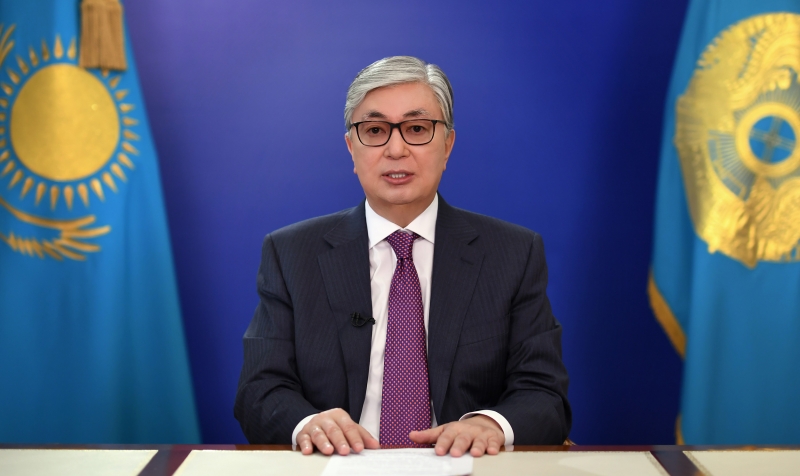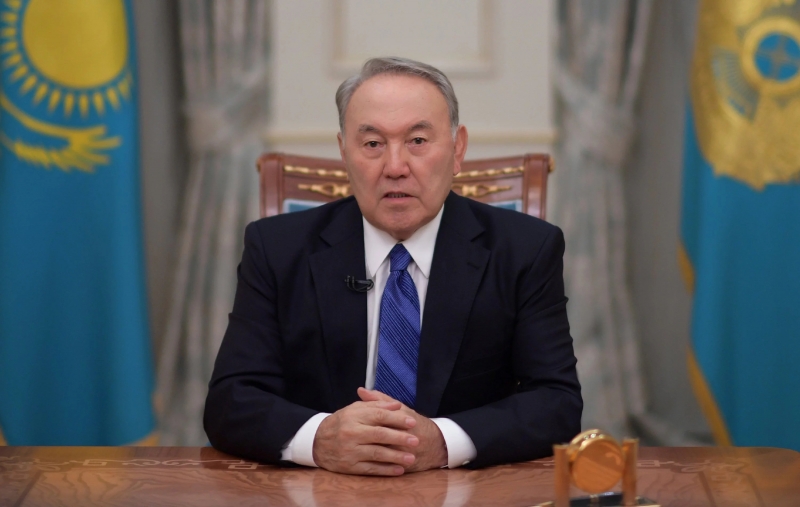President of Kazakhstan Kassym-Jomart Tokayev’s State of the Nation Address, September 2, 2019. Part 3
IV. NEW STAGE OF SOCIAL MODERNISATION
The country’s budget should be focused on two main objectives – the development of the economy and solving social problems.
The social sphere should focus on the following areas.
First. Improving the quality of education.
The effective methodology of accounting for the balance of labour resources has not yet been developed in our country.
In fact, the domestic training system is out of touch with the real labour market.
Around 21,000 school graduates annually do not have access to vocational and higher education.
This group of young people is the basis of the unemployed and marginalised. Many of them are exposed to criminal and extremist movements’ influence.
We need to identify the pupils’ abilities and move towards a career guidance policy.
This policy should be the basis of the national standard of secondary education.
Demand for technicians in our economy is very high, but capabilities of the national education system are low. Enterprises have to invite relevant professionals from abroad. We need to correct this situation quickly.
The difference in quality of secondary education is growing between urban and rural schools.
The main problem is the deficit of qualified teachers in rural areas.
Therefore, we need to expand the scope of the program "With diploma to the village” and continue the work on a new level. I task the Government to finance the programme with up to $20 billion tenge next year.
It is necessary to select talented rural youth and prepare them for domestic and foreign higher education institutions.
I task the Government to develop a roadmap to support gifted children from less well off and large families.
Governments and akims should have the opportunity to make such children attend youth clubs and centres and summer camps.
Now I want to focus on the quality of the higher education.
Only half of the country’s higher education institutions ensure a 60 per cent employment rate for their graduates.
Therefore, it is necessary to consider the reduction of their number.
It is no secret that there are universities that are engaged in selling diplomas instead of quality education.
By banning them, we should strive to improve the quality of the teaching in educational institutions.
Another problem with education is the uneven financing and the inefficiency of the modern regional governance system.
It is necessary to transfer the functions of managing the education departments and administration of budgetary funds from the district level to the regional level.
It is necessary to introduce a special financing order at all levels of education.
The poor quality of textbooks is another urgent problem.
Providing students with quality textbooks is a direct responsibility of the relevant ministry.
These measures are not going to have an effect if we do not improve the social standing of teachers.
That’s why I have instructed, at the August conference, the doubling of teachers’ salaries over the next four years. This means that next year salaries of teachers will grow by 25%.
The situation in science requires special attention. Without it, we cannot ensure the progress of the nation. Another question is to what extent is our science high quality and effective?
The Government should consider this problem from the point of view of increasing the level of scientific research and its practical application.
Second. Support for the institution of family and childhood, the creation of an inclusive society.
Protecting the rights of children and combating domestic violence should be our priority.
It is necessary to deliberately address the problem of high suicide rates among adolescents.
We have to create a holistic programme to protect children affected by violence, as well as their families.
Particular attention should be given to families with children with disabilities. According to official statistics, over 80,000 children are registered as having a disability.
The Government should develop measures to improve the medical and social support of children with cerebral palsy.
It is necessary to expand the network of small and medium-sized rehabilitation centres for children within walking distance.
We must create equal opportunities for people with special needs.
I talked about this during my election campaign. Now I instruct the Government to allocate at least 58 billion tenge for these purposes over three years.
Particular attention is required to strengthen the health of the nation. It is important to develop and promote sport among all age groups.
It is necessary to ensure the maximum availability of sports infrastructure for children.
The development of a mass sporting culture needs a pyramid structure. On top there will be new champions, and at its base a healthy and active youth and, ultimately, a strong nation.
Legislative support for this course is required, as well as the adoption of a Comprehensive Plan for the Development of Mass Sports.
2020 is declared the Year of the Volunteer. The urgent task is to expand the participation of citizens, especially youth and students in volunteer activities, to instil in them the skills for an active life. This is an important part of our work to strengthen civil society.
Third. Ensuring the quality and accessibility of medical services.
We are still seeing regional imbalances in the health of our population, especially in maternal and infant mortality.
Yes, these gaps are decreasing, but they remain large and significantly exceed those in developed countries.
The Government must create a list of health priorities for each region and introduce a budget based on such a list.
On January 1, 2020, Kazakhstan will launch a system of compulsory social health insurance.
I want to re-assure everyone: the state will maintain a guaranteed amount of free medical care. More than 2.8 trillion tenge will be allocated for its financing over the next three years.
The implementation of the compulsory social medical insurance is designed to improve the quality and accessibility of medical services.
Under the three-year budget, an additional $2.3 trillion tenge will be allocated for the development of our healthcare system.
The Government needs to be extremely responsive in implementing the social health insurance scheme to prevent its further discrediting.
We no longer have room for mistake.
Fourth. Support for those who work in culture and the arts.
We have not paid sufficient attention to those working in the field of culture including library, museum and theatre staff.
Their salaries have not increased in recent years.
As a consequence, workers in this field, especially young professionals, cannot participate in affordable housing programmes.
Such a situation is undermining the reputation of the profession, the lack of relevant staff has become obvious.
Next year, the Government should increase the salary of those working in the cultural sector.
Besides, social benefits that apply in the fields of education and health should also be provided to the workers of the cultural sector.
Fifth. Further development of the social support system.
The state is taking measures to support citizens in need.
But a number of decisions were not fully thought through.
As a result, we face a serious increase in dependency attitudes. Over the past 5 years, the number of recipients of targeted social assistance in Kazakhstan has grown from 77,000 to more than 1.4 million.
The amount of funds allocated from the budget for social support since 2017 has increased more than 17 times.
In other words, more and more people choose not to work or, even worse, hide their income to receive social assistance. Cases of wealthy families receiving social assistance have been covered in the media.
Once again, I note. As set out in our Constitution, the state is focused on social welfare and must fulfil its obligations to citizens.
The Government is obliged to proceed from this principle in its work, and additional funds must be found by eradicating wasteful expenditure and by increasing revenues.
Reserves for this, of course, are available. The Ministry of Finance is working to increase revenue. But more effort is needed including in areas such as customs.
Elbasy at a meeting of the Nur Otan political council drew special attention to streamlining the public procurement process. The Ministry of Finance has begun improving procurement, but legislative measures are also needed.
Public procurement is a field where money is wasted – according to some estimates, up to 400 billion tenge per year – which could go towards finding the solution of acute social issues.
In 2018, 4.4 trillion tenge was spent on public procurement, of which 3.3 trillion tenge or 75% took place in a non-competitive way with only one supplier.
It is time to end this "feeding trough” for officials and "clingers-on” of various kinds.
Returning to targeted social assistance, the Government should adjust the way it is allocated so that it becomes transparent, fair and encourages people to seek work rather than pursue an idle lifestyle.
Assistance should mainly be given to those who work.
At the same time, we need to take care of children from low-income families.
They require the introduction of a guaranteed social package. This should include help for preschool children, free hot meals for all schoolchildren, the provision of school supplies and uniforms, payment of medical, including dental care and reimbursement of public transport travel expenses.
All these measures should come into effect on January 1, 2020.
The Government, together with the Atameken National Chamber of Entrepreneurs, is required within a month to develop a special programme for the participation of mothers of large families in micro and small businesses, including through home working.
Sixth. I would also like to draw attention to the development of our domestic pension system where serious problems have accumulated.
At the moment, the funding of pensions is sufficient. But in 10 years, this situation may change.
The number of working citizens making pension savings will decrease significantly while the number of pensioners will increase.
At the same time, the amount of investment income received from pension assets remains low.
Therefore, the Government, together with the National Bank, should carry out substantial work to increase the effectiveness of the pension system.
Currently, a working person can only access his pension savings on retirement. But the desire of people to use these funds during their working lives is understandable.
I instruct the Government by the end of the year to consider how the targeted use by working citizens of part of their pension savings, for example, for buying a house or getting an education might be achieved.
In order to reduce costs and improve the quality of investment asset management, I instruct the Government to look at consolidating the extra-budgetary social security system by creating a unified social fund and introducing one social payment.

